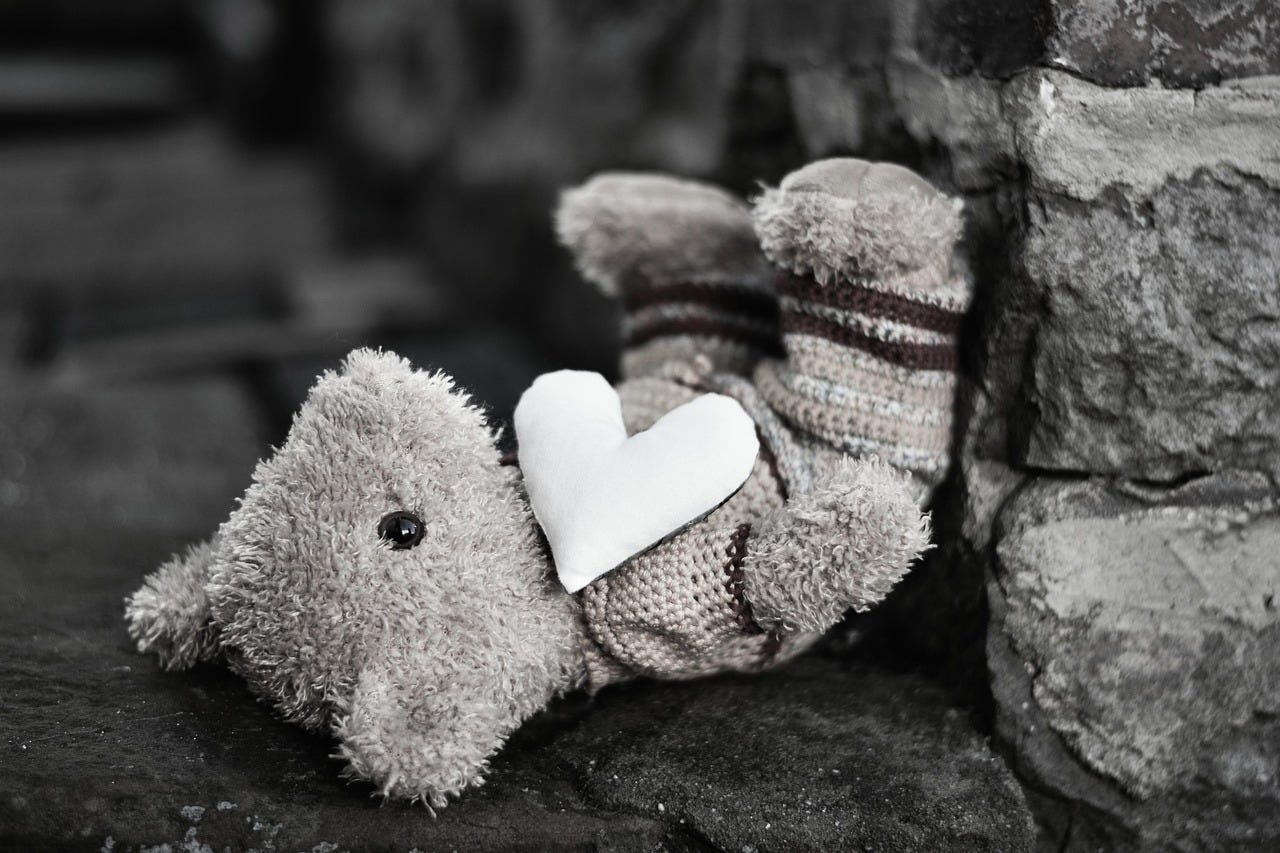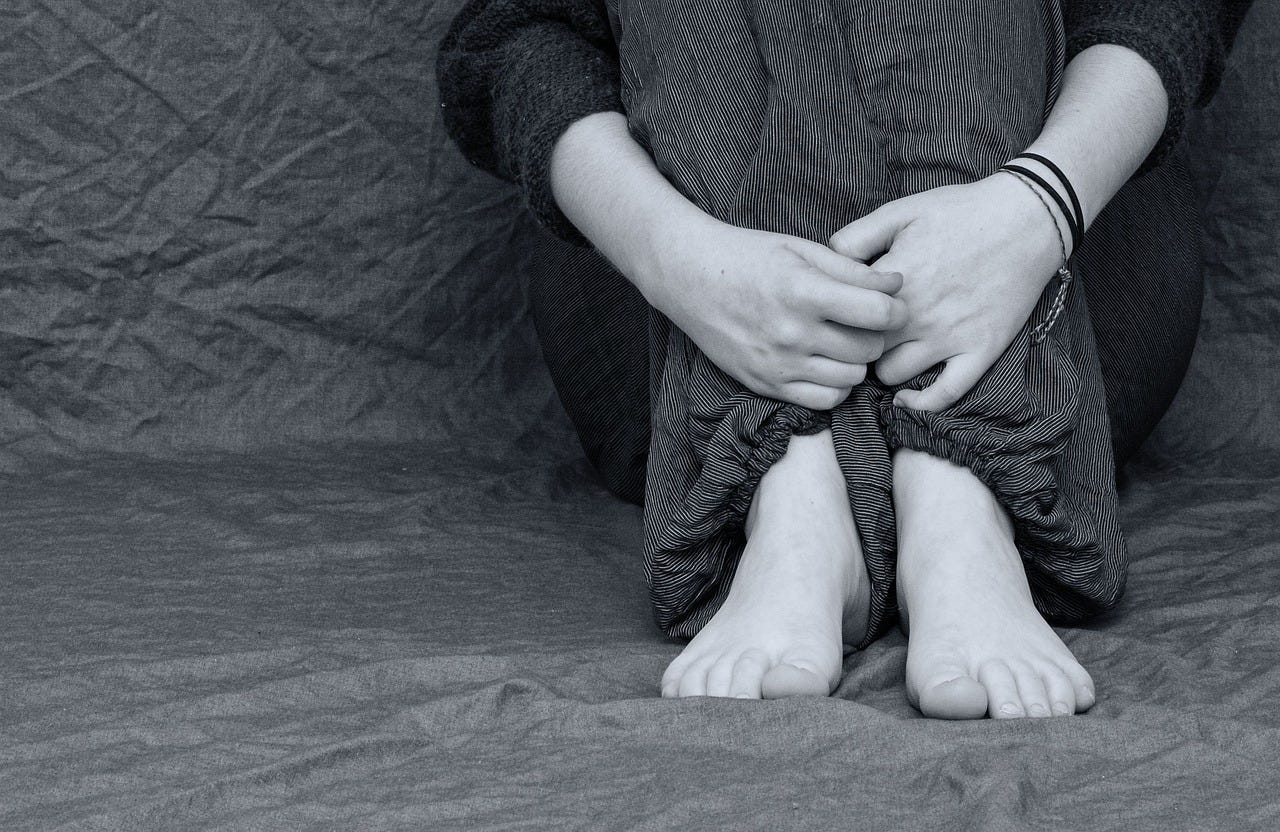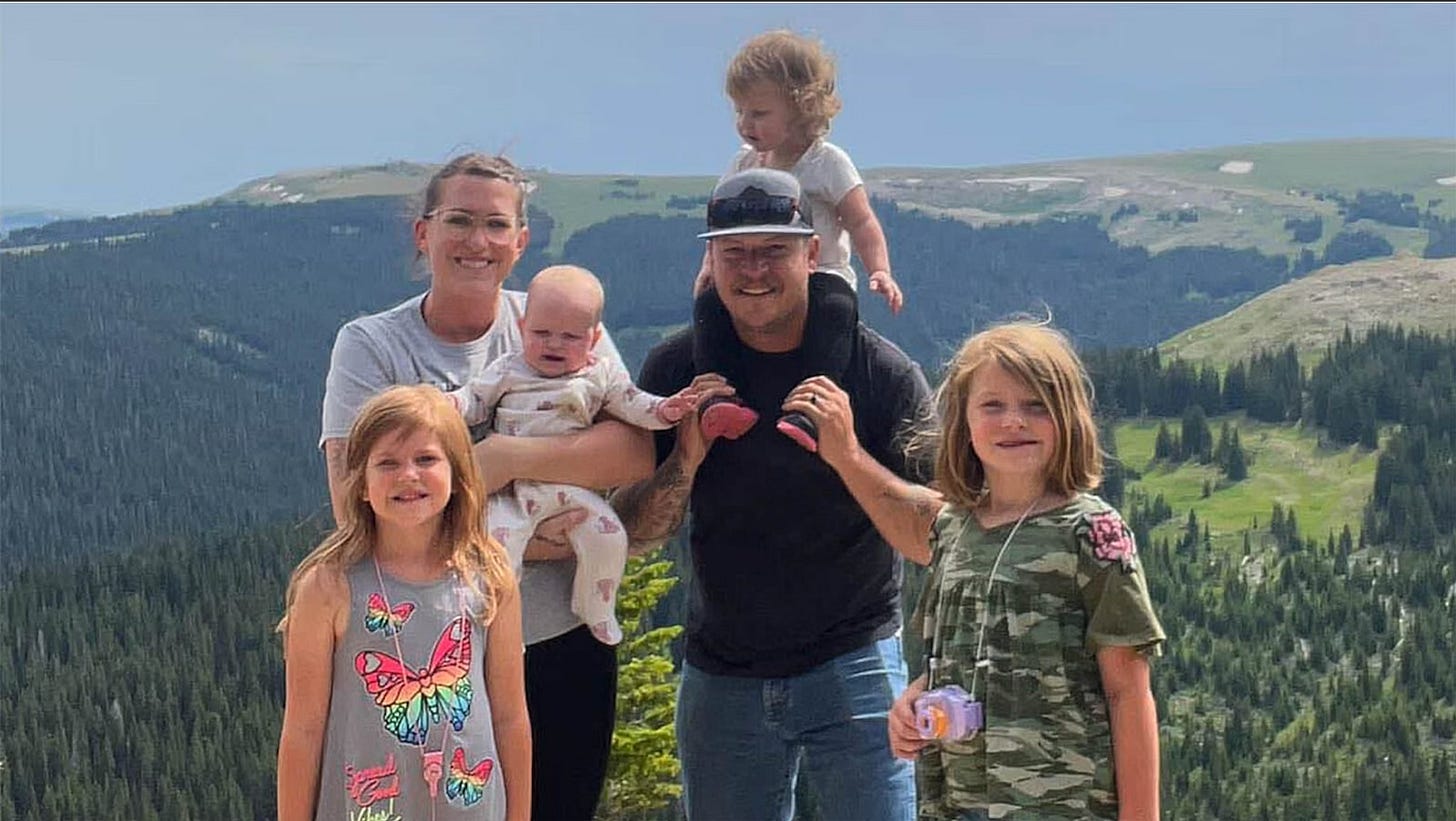Tranyelle Harshman: Sole surviving child of mother who killed her kids and herself succumbs to gunshot wound
Harshman allegedly suffered from postpartum depression when she took the lives of her four kids and herself
The fourth child of a mother who shot and killed her daughters before killing herself has died after a week of battling her injuries, according to a KSL report.
The Big Horn County Sheriff’s Office (BHCSO) in Wyoming announced in a press release that on Feb. 10, 2025, a woman called 911 to report that her daughters had been shot inside of her home. When asked the state of the victims, the woman informed the dispatcher that she believed her children were dead.
The woman also told the dispatcher that two of the children were located upstairs in their cribs, while two children would be found downstairs in the bedroom they shared. She admitted that she would be found in her own upstairs bedroom after she did the same to herself.
The release explains that the dispatcher pleaded with the woman to remain on the phone until responding units arrived, but the woman simply told the dispatcher she couldn’t that and it was too late. She hung up the phone.
Dispatchers immediately sent multiple law enforcement units to respond to the scene on the 200 block of East Shoshone Street in Byron with units from the BHCSO, Lovell Police Department, and Wyoming Highway Patrol.
They made entry into the home within minutes of the dispatch, where they found two female children, aged 2 and 9, dead from gunshot wounds and two other female children, aged 2 and 7, still alive with gunshot wounds to the head.
The woman, 32-year-old Tranyelle Harshman, was confirmed to be the 911 caller and the mother of the four children, the release states. She was found with a gunshot wound to the head, but showed signs of life in the upstairs bedroom. Immediate first aid was performed.
Ambulances arrived to provide advanced life support to the woman and the sole surviving daughter, the 7-year-old. The 2-year-old who initially still showed signs of life succumbed to her injuries a short time later.
The 7-year-old girl, Olivia, was transported to the North Big Horn Hospital where she received continued advanced life support, before medical professionals had her air lifted by the Cody Regional Health-First Flight of Wyoming air medical helicopter to another facility. The mother remained at the North Big Horn Hospital, though was moved to a hospital in Billings, Montana, where she died the following day.
On Feb. 16, 2025, Katelynn Blackmer, stepmother to Olivia and 9-year-old Brailey, posted to the GoFundPage that had been started to help the family to announce that after almost a week of battling to overcome the injuries, Olivia Blackmer died at the Primary Children’s Hospital in Salt Lake City.
“Olivia is with her sisters now. She gained her angel wings yesterday at 3:44pm. She fought so so hard up til the last minute! Her body and her brain had been through too much, medication helped but we reached a point where medical options were exhausted and her body only continued to get worse. She kept fighting through it all though until her heart stopped.”
The four daughters lived with their mother. Katelyn and Quinn, father of Olivia and Brailey, also have a one-year-old son, according to the GoFundMe.
Cliff Harshman was Tranyelle’s current husband, and father to the two youngest girls, Brooke and Jordan, who died that day. He had also been helping raise the other two girls.
Katelynn also wrote that the family is grateful that Olivia held on for five days so they could spend that last valuable time with her.
“My wife was not a monster”: What led this mother to murder/suicide?
In an interview with Cowboy State Daily, Cliff Harshman tearfully tried to make sense of the tragedy, revealing that Tranyelle had been struggling with postpartum depression, post-traumatic stress disorder, and standard depression in the time leading up to the deaths of her and the kids.
“My wife was not a monster,” he stated through tears. He noted that Tranyelle had been receiving treatment, though didn’t go into details about what she had been doing.
“Most people don’t understand how that affects the brain. It’s a chemical imbalance,” he said. “And it can be exacerbated by trying to fix it with medication.”
Cliff said he got to tell Tranyelle goodbye before she died, even if she was unresponsive at the time. Despite her recent struggles, he told the reporter that this was not at all like his wife.
“This is so out of character. It’s unbelievable what had happened. We’d been getting her help, and along the way something didn’t work,” he said, wondering if she didn’t want to leave the kids behind when she took her own life.
“As angry as I may be with her, I still love her — and I still lost her as well.”
He revealed that the kids had been home from school that Monday, sick with the flu. At the time, he was working in Southern California. His job frequently sends him out of state, the Cowboy State Daily notes.
Without even grabbing his extra clothes, he bolted from California as soon as he heard what had happened at home. He said he has been staying at a hotel since the events.
Cliff also told the reporter that he and Quinn Blackmer didn’t always get along over the years, but the fathers are now leaning on each other in the aftermath of the tragedy, and said that he loved his stepkids as if they were his own.
He is originally from Powell, but said that he and Tranyelle bought a home they loved in Byron just over a year ago, settling into the town with a population of 562.
In an interview with People Magazine, Cliff also voiced his anger with Tranyelle over her choices.
“I know this was something beyond what I can comprehend, I’m a mess. I don’t even know how to explain this to you. I’m so angry with her for the decision that was made,” he said.
“People don’t understand how mental illness isn’t just a willpower thing. It’s chemical imbalances in your brain. It’s damaged pathways in your brain,” he also told KTQV. “She was an incredible mom and she loved those kids.”
Quinn Blackmer, who also spoke to a People reporter, expressed how “furious” he was with Tranyelle, too.
“I’m trying my hardest to bury that for a while and to focus on the now, because that anger isn’t going to bring my child back.”
A longtime friend of Tranyelle, Briana Baker, told News 5 Cleveland that people shouldn’t assume Tranyelle’s struggles can’t become their own. Baker has a daughter of her own.
“Everything can change in an instant. Never allow yourself to think, ‘it couldn’t be me.’ Stay humble and kind. You never know what someone is struggling with inside of their mind. Tranyelle was not the monster this tragedy makes her seem to be. Her loved ones don’t want her to be remembered for her darkest moments. She was sweet, loving, and funny. Her children were her main focus in life.”

Postpartum depression: The common motive in filicides
“To take the child with them is to do the child a favor. Among child murderers it’s pretty common. I remember a mother left a suicide note after killing her child that said, ‘bury us in one box. We belong together, you know.’ I’ve seen a couple like that.” - psychiatrist Phillip J. Resnick, the Los Angeles Times, 1992.
Phillip Resnick, director of forensic psychiatry at Case Western, has studied mothers who commit filicide since the sixties. He created classifications of filicide, as there are varying motives for why mothers turn to murder — something I am going to explore when I begin posting my series on filicide and the psychology behind it. The following comes from that series and what I learned in researching and writing about it.
Altruistic filicide comes from a place of deep desperation where a mother is usually already suicidal and decides she cannot leave her children behind in the world without her. Resnick states that almost half of filicidal acts can be categorized under this title. There are two subgroups that accompany this category: “Filicide associated with suicide”, and “Filicide to relieve pain or suffering.”
This heartbreaking case falls under the former. A suicidal mother may come to the final decision to kill herself, and take her children with her, believing she can’t abandon them. She kills them to keep them from suffering a life without her. The mother may also believe her children are an extension of herself, and that when she is miserable and in pain, so are they.
Another study by Resnick and Susan Hatters Friedman, and others, broke down this motive even further into “psychotic altruistic” and “non-psychotic altruistic.”
“For example,” the study notes. “A psychotic altruistic motive would include taking a child’s life because of the delusional belief that the child was in acute danger of a worse fate. Alternately, a non-psychotic altruistic case would be taking the life because of a belief that a severely medically ill child would be better off.”
Postpartum depression and postpartum psychosis are real and concerning conditions, which could become dangerous for the mother and her child if left untreated. Postpartum depression is more severe and long lasting than the typical baby blues a new mother may experience, according to the Mayo Clinic. Symptoms can develop during pregnancy and long as last as the first year after birth. Severe mood swings, excessive crying, social withdrawal, feelings of worthlessness, shame, guilt, thoughts of self harm or suicide, or thoughts of harming the baby, are all concerning symptoms of this depression.
A more rare condition, postpartum psychosis, typically begins within the first week following the child’s birth. These symptoms are more severe than the depression counterpart, including disorientation, obsessive thoughts about the baby, hallucinations or delusions, sleep disturbance, excessive energy or agitation, paranoia, and attempts to harm herself and the baby.

When combined with mental illnesses like standard depression and PTSD, it creates layers of emotional disturbances and mood imbalances, complete with whatever triggers may accompany the PTSD. Without knowing what the root of Tranyelle’s PTSD was, it’s hard to pinpoint whether it was related to childbirth or something else, and how it would have interacted with her postpartum depression. Nothing says that she was diagnosed with postpartum psychosis, only depression, so it doesn’t seem likely that she was suffering from delusions or hallucinations at the time she turned the gun on her kids and herself.
If Tranyelle had a pre-existing history with depression and PTSD, then postpartum depression would have left her even more vulnerable to the immense darkness cast over her causing suicidal thoughts. To find a combination of medications to make her feel better would have taken some time.
And tragically, not everyone lives long enough to find the concoction that works.
It indeed seems weird that with the fathers still in the kids’ lives and a stepmother, Tranyelle would have felt the need to take the kids with her when she decided to take her own life. In scrolling through the Facebook comments on the County Sheriff’s press release, many people were expressing anger at her, and at those trying to explain how postpartum depression and mental illness can lead to such horrifying acts.
“Stop making excuses for her!” — this was a common one I saw in my scrolling.
The thing is, it’s not merely an excuse. To spew this as though implying mental illness played a factor is justifying the murders of four innocent children is in itself toxic. Think of the cases we know where mothers did this same thing in the depths of mental illness and sometimes, delusions. Andrea Yates. Lashanda Armstrong. Lindsay Clancy. Angela Flores. For all of the mothers who do legitimately murder their children in cold blood out of spousal revenge or abuse, there are some mothers who believe that in taking her children into death with her, she is doing them a favor.
And it’s something you absolutely cannot understand unless you have been there. It is horrifying, tragic, and devastating, and these fathers and remaining family members have every right to be angry and anguished. It’s important to acknowledge their pain and grief, and everything they lost that day.
It’s also important to acknowledge the life and the years robbed from the kids. Their futures. Their families. Their light.
In all of that, it’s still important to acknowledge that a mother didn’t receive medical care for the mental illness that led her to taking her kids lives, and her own. In acknowledging that, we can begin to admit how preventable these cases are if we provide that treatment to mothers instead of waiting until they and their children are dead to admonish and condemn them.
Instead of calling women like Tranyelle Harshman monsters, let’s call them what they truly are, and act accordingly in prevention of the worst: sick.
Ladies, please. If you, or someone you know, is struggling with depression post-childbirth and are experiencing disturbing thoughts, get help. Reach out. That period right after having a baby can be so isolating to so many women. Friends can back off in your new stage of life. But don’t hesitate to reach out to a professional. Don’t let it a 911 dispatcher be the last person pleading to save your life and help you.
Your life matters, as do those of your children.
Sources
Big Horn County Sheriff’s Office statement
https://www.facebook.com/photo/?fbid=1037812648386726&set
Cowboy State Daily
People Magazine
https://people.com/wyoming-mom-murder-suicide-father-angry-but-forgives-11679547
KSL
GoFundMe
https://www.gofundme.com/f/help-olivia-fight-after-tragic-loss
News 5 Cleveland
Resnick JP. Filicide in the United States. Indian J Psychiatry (2016)
https://www.ncbi.nlm.nih.gov/pmc/articles/PMC5282617/
Child murder by mothers: patterns and prevention
Susan Hatters Friedman and Phillip J. Resnick




